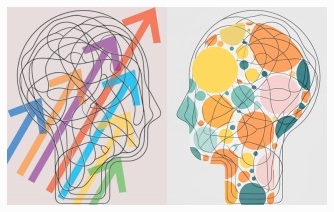
Or it can feel good and be wrong.
It’s a quiet distinction—easily missed, but central to personal wisdom.
It’s tempting to let emotion guide your ethical compass. But how something feels isn’t always a trustworthy measure of what’s right.
Feelings are powerful—but not infallible.
To live thoughtfully is to ask: “Does this feel right, or is it truly right?”
That question opens the door to deeper discernment, separating impulse from principle, gratification from growth.
The ability to think beyond emotional distortion is a cornerstone of wisdom. It asks you to look past immediacy and self-interest, and to judge your actions by consequence, ethics, and truth. That clarity builds a life shaped by integrity, not impulse.
Feelings are persuasive. They echo survival, not morality.
They are weather, not climate.
To live wisely is to respect their presence—and step beyond their sway.
Idea for Impact: Growth begins where reaction ends.